International Policy
It will not be easy for Kiev’s Court to determine whether Ms. Yulia Tymoshenko is victim of a plot or she is really guilty. The former heroine of the pro-European Orange Revolution in November 2004 is accused of “abuse of power.” In 2009 she signed directly with her Russian colleague Mr. Vladimir Putin contracts for the supply of gas, causing around 130 million euros in damages to the national Treasury, say the investigators. The hot climate, not only for the temperature, will not help the judges. 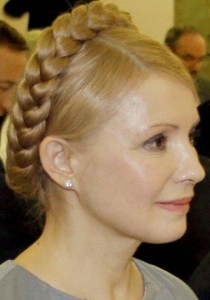
If convicted the former Ukrainian “Joan of Arc” could face up to 10 years in prison. The European Union and the United States have sent their observers. There are already numerous dossiers on members of the former government and former Interior Minister Yuri Lutsenko was arrested for “embezzlement”. Parties close to Ms. Tymoshenko accused the Russophone archenemy President Viktor Janukovich of wanting to turn himself into a dictator and former prime minister has asked the European Court of Human Rights to rule, since the charges were politically motivated. “This is just a farce,” she went down hard early in the process. This is a revenge of the “coward” Yanukovich against her.
The definition of the price of gas has always been problematic. There are many factors that contribute to shape it in a little transparency. Since the collapse of the USSR Ukrainians and Russians have been constantly on stormy relationship, going so far as to fight two “wars”. Pipelines were blocked twice in 2006 and in 2009 and Europe was left frozen in winter.
President Yanukovich assured Western capitals that justice and politics are well separated in his country. In an interview with a French newspaper the Ukrainian leader said that the price set in 2009 was “unfair.” Kiev accepted to pay $ 450 per thousand cubic meters, when at the free market it was 179. “Today – asserted Yanukovich – should be less than $ 200.”
Stop allo Scudo anti-missilistico occidentale.
22 Jun 2011Un “no” deciso allo Scudo anti-missilistico occidentale. Dopo mesi di trattative dietro alle quinte russi e cinesi hanno espresso pubblicamente la loro contrarietà. Si teme una nuova prossima corsa agli armamenti in stile Guerra Fredda. 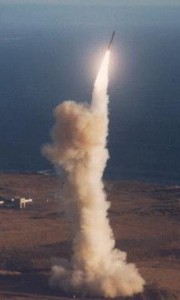
Come si ricorderà gli Stati Uniti di Obama hanno modificato il progetto originario di George Bush, abbassando il rischio esterno di lanci isolati di vettori da parte dei Paesi cosiddetti “canaglia”, Iran e Corea del Nord su tutti. Gli americani, in pratica, intendono creare non più difese globali, ma mettere in piedi dei sistemi regionali contro missili a corto e medio raggio. Mosca è stata invitata da Washington a partecipare al progetto europeo insieme alla Nato, ma qualcosa, evidentemente, non sta funzionando. Gli incontri tra specialisti militari non avrebbero dato finora esiti favorevoli.
Il problema, in realtà, pare più politico. In Russia si stanno avvicinando le elezioni generali. Si voterà a dicembre per le legislative e nel marzo 2012 per le presidenziali. Tradizionalmente i politici federali, troppo schiacciati su posizioni pro-occidentali, fanno fatica ad imporsi. Inoltre il nodo su chi tra Dmitrij Medvedev ed il premier Vladimir Putin si presenterà candidato non è ancora stato sciolto e la “telenovela” tra i due è destinata a durare a lungo.
Nei giorni scorsi la Repubblica ceca ha annunciato di rinunciare ad ospitare uno dei siti del mini-Scudo regionale. I repubblicani americani se la sono subito presa con il presidente Barack Obama, accusato di aver venduto gli alleati dell’Europa orientale ai russi, con la sua politica estera di eccessive aperture al Cremlino.
La scelta di Praga, al contrario, è stata salutata positivamente da Mosca, che teme che quelle difese anti-missilistiche nel Vecchio Continente servano non contro lanci di lontani nemici bensì per tentare di mettere sotto controllo il suo arsenale.
Nelle settimane in cui nessuno se le manda a dire è entrato in campo a sorpresa anche il segretario della Nato Anders Fogh Rasmussen, che ha definito come “soldi buttati via” il progetto russo per lo sviluppo di nuovi missili balistici intercontinentali. “Questo tipo di retorica – ha osservato il capo dell’Alleanza Atlantica – non è necessaria; questo tipo di mentalità è fuori dai tempi”. Pronta la replica del capo dello Stato maggiore federale Ivashov, che ha affermato come “I loro progetti non li ha capiti nessuno”. La crisi libica in pieno sviluppo e dalle molte incognite, la possibile discussione al Consiglio di Sicurezza dell’Onu per una risoluzione sulla Siria e l’avvicinarsi degli appuntamenti elettorali in Russia sono un cocktail poco digeribile. Il caldo dell’estate porta inatteso nervosismo.
Baltic region. New challenges, old adversaries.
20 Jun 2011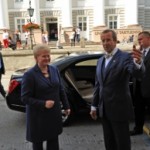 How to prevent future threats to the Baltic region was the main topic at the Estonian – Lithuanian summit, held in Tartu. The two states seek to become NATO’s energy and cyber security hubs not forgetting a recent period of tension with Russia.
How to prevent future threats to the Baltic region was the main topic at the Estonian – Lithuanian summit, held in Tartu. The two states seek to become NATO’s energy and cyber security hubs not forgetting a recent period of tension with Russia.
Estonian President Toomas Hendrik Ilves assured the support of his country in developing the energy security centre in Lithuania into a NATO Centre of Excellence, as the alliance’s cyber defence centre in Tallinn. His Lithuanian colleague Dalia Grybauskaite highlighted that both countries are united by the common goal of preventing the use of energy as a political tool. It is therefore necessary to speed up the integration of the Baltic States’ electricity market into the Nordic market (NordPool), to diversify energy supplies and to reduce dependence on a single supplier.
Mrs. Grybauskaite said that his country supported the construction of a LNG terminal in Estonia or in Latvia, but it had decided to build its own terminal in Klaipeda. She pointed out that several terminals operating in the Baltic countries would increase competition in the gas market, ensure lower consumer prices and strengthen the region’s energy independence.
“Estonia is still interested in participation in the Visaginas nuclear power station,” President Ilves assured, adding that Eesti Energia is currently considering the offers of two potential investors. “Let us hope that the negotiations for finding and involving a strategic investor will be successful and the new nuclear power station will be a project that will really enhance the energy security and independence of the region considerably.”
Speaking about cyber security, Mrs. Grybauskaite proposed to follow the recommendations of the former foreign minister of Norway, Jens Stoltenberg, and to form a Nordic-Baltic cyber defence force.
For a further European integration Mr. Ilves said that “When can we take a high-speed train from Estonia, through Latvia and Lithuania, to Berlin? When will we finally have a modern Via Baltica, which connects all of us and then runs further, to Poland? When will the Baltic states no longer be an energy isle, separated from the rest of Europe? The answers to these questions will also represent our evaluation of the health of our regional co-operation in the 21st century.”
Presidents Ilves and Grybauskaite discussed the neighbourhood policies of the European Union, with an emphasis on Ukraine, Georgia, Moldova and Belarus.
“The government in Minsk, which talks to its people in the language of batons and imprisonment, is not fit to be a part of today’s Europe. In this case, the European Union should use powerful words to provide balance, by uniting its voice with its mind; the pressure on the Belarusian regime needs to be powerful and efficient, with all sanctions very accurately aimed,” President Ilves added.
Travel to the Baltic Hansa, book by Giuseppe D’Amato.
 «У разных народов есть свои традиции глупости…в Германии выражение “подвиг шильдбюргеров” считается синонимом чрезмерного старания самодурной власти…идет поиск немецкими ведомствами источника кишечной эпидемии, которая унесла жизни уже 35 человек, в основном немцев… Сначала германские власти нашли вирусный штамм в испанских огурцах, потом выяснилось, что это не совсем тот штамм. Понятно, что испанцы обиделись. А немцы продолжили искать дальше, арестовали помидоры, которые потом также оказались ни при чем… инфекция якобы пошла на спад. Вот только люди и дальше умирают… Нелепая история. Ведь в немецких детективах полицай всегда побеждает…
«У разных народов есть свои традиции глупости…в Германии выражение “подвиг шильдбюргеров” считается синонимом чрезмерного старания самодурной власти…идет поиск немецкими ведомствами источника кишечной эпидемии, которая унесла жизни уже 35 человек, в основном немцев… Сначала германские власти нашли вирусный штамм в испанских огурцах, потом выяснилось, что это не совсем тот штамм. Понятно, что испанцы обиделись. А немцы продолжили искать дальше, арестовали помидоры, которые потом также оказались ни при чем… инфекция якобы пошла на спад. Вот только люди и дальше умирают… Нелепая история. Ведь в немецких детективах полицай всегда побеждает…
Но, слава Богу, не обошлось без подвига. Включилась Россия. Глава Роспотребнадзора Геннадий Онищенко запретил импорт европейских овощей, смело защищая свою страну и народ… Меры России являются необоснованными и непропорциональными”, — обиделся представитель Евросоюза в России Фернандо Валенсуэла. Ведь эпидемия практически полностью локализовалась в ФРГ… Не могли бы русские после внимательных проверок пустить к себе хотя бы греческие оливки или финскую петрушку? Не могли!… Говоря другими словами: Россия больше не хочет жрать западную дрянь, Россия окончательно поднялась с колен. Важность исторического момента была подчеркнута тем, что Владимир Путин лично ответил Фернандо Валенсуэле: “Мы не можем ради какого-то духа травить наших людей”…Ведь по большому счету Европе сейчас не до импортных запретов России. Евросоюзники нынче яростно обсуждают, сколько еще сотен миллиардов потребуют ненасытные греки на погашение своей финансовой катастрофы… Главсанврач России объяснил всему миру, почему немцы мрут как мухи: виноваты и “европейские нормативы… которые созданы в угоду экономике, а не охраны здоровья человека”, и низкий уровень немецких врачей да мизерное количество лекарств — “они не могут лечить, потому что тот антибиотик, который есть у них на вооружении, не убивает этот микроб, а только приносит вред”. (Немцы, кстати, практически не пользовались никакими антибиотиками, невероятно, как они все-таки вылечили 99 процентов больных.)…
Но Угрюм-Онищенко, очевидно, решил напомнить миру, что если у немцев есть Шильда и шильдбюргеры, то у русских — город Глупов со своими градоначальниками… Но когда прошлым летом жара и пожары в России переполняли трупами морги, европейские чиновники вслух не интересовались, куда в России делись деньги, предназначенные для приобретения противопожарной техники. А послали помощь…. Товарищ Онищенко почему-то не дал немецким больным ни одной таблетки. Даже не предложил… Те, правда, российской помощи и не очень-то ждут… врач Онищенко… как и большая часть полугосударственной российской общественности, действует по старой доброй традиции: не замечать собственного бардака, но защищать родину от страшных внешних угроз. Причем защищать так шумно, чтобы народ об этом бардаке позабыл…
Русские часто и охотно жалуются на западные двойные стандарты. Но российская политика по отношению к Западу сама ведется как бы на двух этажах… Когда надо, Москва принимает западных гостей на верхнем этаже, в суперсовременном интерьере, свободно болтая по-английски, убедительно требуя отмены виз в Европу. Приглашает западных инвесторов, выступает за “партнерство ради модернизации”, ездит с официальными визитами по приглашению баварского парламента, включая, конечно, посещение Октоберфеста…А когда надо, например перед выборами, та же Москва спускается обратно в старый совдеповский подвал, откуда на Запад можно смотреть только из бойниц. Там слова “наши партнеры” окрашиваются кислой иронией, вспоминается о западной корыстности, о западном предвзятом футбольном судействе и о том, что эти сволочи во время Великой Отечественной никак не хотели открывать второй фронт. И почему-то считается, что этот подвальный театр для домашней публики на Западе никто не замечает».
Статья – – Штефан Шолль – Московский Комсомолец № 25666 от 14 июня 2011 г. Stefan Scholl Moskovskij Komsomolets
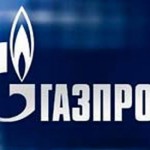 Sembrava la volta buona, ma anche all’ultimo vertice ufficiale al Cremlino l’accordo più importante è stato mancato. Russi e cinesi non sono riusciti a definire il prezzo di acquisto del gas che in futuro verrà venduto a Pechino. La costruzione di due condotte va avanti a marce forzate attraverso la Siberia, ma il dato principale non è stato ancora concordato.
Sembrava la volta buona, ma anche all’ultimo vertice ufficiale al Cremlino l’accordo più importante è stato mancato. Russi e cinesi non sono riusciti a definire il prezzo di acquisto del gas che in futuro verrà venduto a Pechino. La costruzione di due condotte va avanti a marce forzate attraverso la Siberia, ma il dato principale non è stato ancora concordato.
Le differenze tra le parti non sono piccole. I cinesi hanno ribadito che non sono disposti a pagare il metano a prezzi occidentali, ma i russi non sono disponibili ad alcun sconto. I primi pongono il tetto a 250 dollari per mille metri cubi, i secondi vorrebbero avvicinarsi ai 500, quotazione che per Mosca toccherà alla fine del 2011.
In passato, la Gazprom, la monopolista federale, aveva spiegato agli europei che, in caso di problemi con loro, avrebbe ridiretto il suo prezioso gas verso Pechino. I cinesi, però, hanno stretto contatti e contratti anche con il Turkmenistan, che ha le maggiori riserve di materia prima non utilizzata, proprio per evitare il rischio di avere un solo fornitore.
La questione del prezzo va avanti da anni senza soluzione di sorta. Il dubbio è che cosa succederebbe se russi e cinesi non dovessero trovare l’accordo. Mosca sta costruendo infrastrutture che all’improvviso non possono essere smontate o usate per altri fini.
The European Union and Russia are not only neighbours but also strategic partners. At the upcoming 27th summit, in Nizhny Novgorod, the EU will be represented by Herman Van Rompuy, President of the European Council and by José Manuel Barroso, President of the European Commission. Catherine Ashton, High Representative of the Union for Foreign Affairs and Security Policy, and Karel De Gucht, Commissioner for Trade, will also take part. Russia will be represented by Dmitry Medvedev, President of Russia. Foreign Minister Sergey Lavrov and Minister of Economic Development Nabiullina will also participate. The summit will take place over two days, beginning with an informal dinner on 9 June and continuing with a plenary session on the morning of 10 June, followed by a working lunch and a press conference. 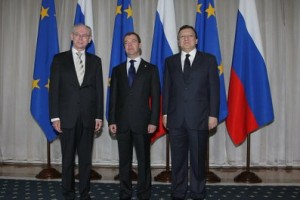
The parties are expected to discuss the following issues:
the global economy and global governance issues;
EU-Russia relations, in particular the EU-Russia Partnership for Modernisation;
international issues, including the developments in North Africa and the Middle East.
The Summit will on build on the good results achieved at last year’s EU Russia Summits, held in Rostov and Brussels.
The EU and Russia will take note of the good progress made in the implementation of the EURussia Partnership for Modernisation, which is a key initiative providing additional momentum to ongoing work in the Dialogues under our Common Spaces. The EU and Russia will discuss the state of play in the negotiations on Russia’s accession to the WTO, which are now at multilateral level. The new EU-Russia Agreement, which is currently being negotiated, should provide a solid basis for deepened bilateral relations in the 21st century covering all areas of EU-Russia relations.
A growing economic relationship
Economic ties between Russia and the EU have grown substantially over the last years. Russia remains the EU’s third most important trading partner in goods (after the US and China), with 87 billion EUR in exports to Russia (6.4% of all EU exports, 4th place after US, China, Switzerland) and 155 billion EUR in imports in 2010 (10.4 % of all EU imports, 3rd place after China and US, mostly natural resources). The EU is thus by far the largest market for Russian goods.
In 2010, both imports and exports rose by approximately 32 % compared to 2009, after having been hit by the global economic crisis. Russia enjoyed a trade surplus of 68 billion EUR with the EU. Russia’s total account surplus rose by 47% compared to 2009 and reached $ 79 billion in 2010. More specifically, Russia is the EU’s most important single supplier of energy products, accounting for over 25% of the EU consumption of oil and gas. In turn, Russia’s economy remains highly dependent on the export of energy raw materials, with the EU as its most 2 important destination. In 2010 63% of Russia’s exports consisted of crude oil, oil products and natural gas. The EU accounts for 88% of Russia’s total oil exports, 70% of its gas exports and 50% of its coal exports.
Financial cooperation
Financial cooperation with Russia began in the early 1990s, under the TACIS program, which has in the meantime been replaced by the European Neighbourhood and Partnership Instrument. To help smooth Russia’s transition, a whole range of sectors were supported. Since 1991, a total of around €2.8 billion of assistance was provided through the European Commission. A number of TACIS projects are still being implemented until 2013. Given the significant recent improvements in the Russian Federation’s fiscal position, the need for large volumes of financial assistance has declined. In fact, Russia herself has become a donor. Financial cooperation is now specifically targeted to meet the objectives defined in the road-maps to the EU-Russia Common Spaces. Cooperation is now carried out on the principle of co-financing by the EU and Russia. Most notably, Russia is co-financing Cross Border Cooperation programmes. Emphasis is on higher education cooperation, with Erasmus Mundus and Tempus supporting mobility of students and teaching staff.
Furthermore, funding for Russia also came from the Nuclear Safety Instrument (€500 million since 1991) and a number of other thematic programs. The European Democracy and Human Rights Instrument (EIDHR) financed 14 human rights projects in Russia in 2010 for nearly € 2 million, and the Institution Building Partnership Programme supported 16 projects with NGOs for a total of € 5 million.
EU-Russia relations – background
The legal basis for EU relations with Russia is the Partnership and Cooperation Agreement (PCA) which came into force on 1 December 1997 for an initial duration of 10 years, and which has been automatically extended beyond 2007 on an annual basis. It sets the principal common objectives, establishes the institutional framework for bilateral contacts, and calls for activities and dialogue in a number of areas. The EU is currently working with Russia on a new agreement to replace the PCA. Both the EU and Russia have experienced many political, economic and social changes since the entry into force of the PCA in 1997. The new agreement must reflect these changes as well as the new challenges linked to the globalised world in which we are living. At the St. Petersburg Summit in May 2003, the EU and Russia agreed to reinforce their cooperation by creating four “common spaces”:
the Common Economic Space aiming to make the EU and Russia’s economies more compatible to help boost investment and trade;
the Common Space on Freedom, Security and Justice covering the area also known as Justice and Home Affairs;
the Common Space on External Security aiming to enhance cooperation on foreign policy and security issues; and
the Common Space on Research, Education and Culture aiming to promote scientific, educational and cultural cooperation.
Materials from the site of the European Delegation to Russia.
Serbia, Mladic in exchange for EU membership?
26 May 2011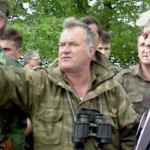
From EuroNews
The arrest of Ratko Mladic is certainly a major step towards a faster integration of Serbia within the EU. His detention has also closed a bloody chapter in the former Yugoslav history, bringing the region closer to reconciliation.
The full co-operation with the International Criminal Tribunal for the former Yugoslavia (ICTY) is the main pre-condition for the negotiations with Brussels. The EU signed a so-called Stabilisation and Association Agreement (SAA) – including an interim deal aiming to facilitate economic and trade relations – with Serbia in April 2008, but then decided to freeze it under Dutch pressure. Only in December 2009 the Netherlands put aside objections related to Belgrade’s performance on war crimes probes.
General Mladic led the militia of the breakaway Republica Srbska, which sought to impose a Serbian identity on the multi-ethnic state of Bosnia; he was the architect of ethnic-cleansing schemes that included the Siege of Sarajevo and the 1995 Srebrenica Massacre in which about 8,000 Bosnian Muslim men were systematically executed. He was indicted by the UN war crimes tribunal in The Hague in 1995 for genocide and other crimes.
The hunt for Mladic started already at the end of 1995. Many observers in Serbia and in the EU suspect that the general has been protected for years by Serbian security forces loyal to President Slobodan Milosevic, who was ousted from power in October 2000. Mladic’s former political master Radovan Karadzic was arrested in 2008 and is still in The Hague.
By the end of the year, after so long negotiations, Serbia will have the chance of formally becoming an EU membership candidate and getting a starting date for accession talks. Serbian President Tadic rejected criticism that Belgrade had only taken action following international pressure and had not calculated when to arrest Mladic, who is considered a hero by local nationalists. But there are still too many unanswered questions.
The European integration of Serbia, Bosnia, and Kosovo is the promise in exchange for concessions to old enemies and the achievement of a complete stable peace in the region. The problem is, however, to understand whether the 27 are ready to accept new members, who have such big open questions in their recent history.
Giuseppe D’Amato
Appena avuta la certezza che l’arabo ucciso ad Abbottabad era Osama Bin Laden il presidente Obama ha subito telefonato a Mosca prima di darne notizia in un discorso televisivo al Paese. L’11 settembre 2001 era stato Vladimir Putin, il primo leader straniero, a contattare George Bush, rinchiuso sull’Air One in volo per motivi di sicurezza. Il favore è stato ricambiato adesso, nove anni e sette mesi dopo.
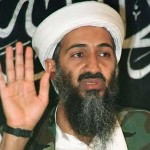
Osama Bin Laden
Le due superpotenze del Ventesimo secolo sono stati infatti i Paesi maggiormente colpiti dal terrorismo internazionale. Il Cremlino aveva avvertito per tempo la Casa bianca negli anni Novanta che la jihad islamica, armata precedentemente in funzione anti-sovietica, era sfuggita di mano ai finanziatori occidentali. Fu così l’ex Kgb a dare a Washington le coordinate di dove si trovassero i campi di addestramento dei terroristi in Afghanistan nell’estate del 1998, pochi giorni dopo che Al Qaida aveva fatto esplodere in un attentato le ambasciate Usa in Africa orientale. Gli Stati Uniti si fidavano, però, allora molto di più degli alleati regionali, i pakistani, che degli ex avversari della Guerra Fredda.
I russi in realtà non hanno mai distolto la loro attenzione dall’Afghanistan anche dopo il ritiro del febbraio 1989. Quando il 27 settembre 1996 i talebani presero Kabul Mosca organizzò una riunione d’emergenza delle repubbliche ex sovietiche asiatiche in cui avvertì gli ex fratelli del pericolo. Seguirono ripetute campagne armate degli islamisti nel cuore del continente, mentre Bin Laden continuava l’invio di suoi uomini in Cecenia, visitata in precedenza dal “numero due” di Al Qaida l’egiziano al Zawahiri.
Oggi la strategia di Barack Obama è di ritirare rapidamente le truppe Usa dai vari teatri di guerra per risparmiare preziosi dollari necessari a ripianare l’immenso debito statale ereditato dall’Amministrazione Bush. Solo così l’America potrà rispondere in un futuro prossimo alla sfida cinese e della globalizzazione in generale. Che siano ora gli alleati vecchi e nuovi ad iniziare a cavarsela da soli, si pensa a Washington. Emblematica è l’uscita di scena americana alla chetichella dal conflitto in Libia.
La morte di Bin Laden segna uno spartiacque nella politica internazionale. Il capo dei terroristi è stato liquidato e i suoi seguaci “arabi” nella regione sono in rotta. “Giustizia” per i cittadini americani, morti l’11 settembre, è stata fatta. L’“exit strategy” dall’Afghanistan, resa nota al vertice Nato di Lisbona lo scorso autunno, può pertanto iniziare come previsto nel 2014.
La telefonata di Obama a Dmitrij Medvedev, buttato giù dal letto prima dell’alba, non è solo un giusto ricambio di cortesie ricevute ma anche l’annuncio del prossimo passaggio di consegne. Fra il 2011 ed il 2014 si tenterà di trovare una soluzione politica per l’Afghanistan, poi gli occidentali se ne andranno. La “patata bollente” tornerà così nelle mani del Cremlino. Ma la Russia odierna ha la forza ed il prestigio di tenere sotto controllo un’area così estesa ed esplosiva come l’Asia centrale? A Mosca a dubitarne sono numerosi specialisti che affermano sicuri: senza un Afghanistan pacificato difficilmente ci sarà pace per i Paesi limitrofi. Il rebus su come fare è aperto a tutti.
Giuseppe D’Amato
Putin, a difesa dello status-quo.
21 Apr 2011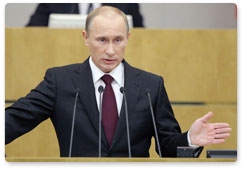 La Russia deve evitare forme di “liberalismo ingiustificato” o esperimenti strani per difendere la sua “sovranità” contro infiltrazioni straniere. Così Vladimir Putin nel suo discorso annuale sul lavoro del governo davanti alla Duma. “Il Paese – ha spiegato il premier – ha necessità di un decennio di stabilità e di tranquillo sviluppo evitando esperimenti e confusione”.
La Russia deve evitare forme di “liberalismo ingiustificato” o esperimenti strani per difendere la sua “sovranità” contro infiltrazioni straniere. Così Vladimir Putin nel suo discorso annuale sul lavoro del governo davanti alla Duma. “Il Paese – ha spiegato il premier – ha necessità di un decennio di stabilità e di tranquillo sviluppo evitando esperimenti e confusione”.
L’obiettivo definito da Putin è di far entrare la Russia nel novero delle prime cinque potenze economiche del mondo per il 2020. Dopo gli anni del boom dovuto ai profitti dalla vendita delle materie prime Mosca ha l’arduo compito di trasformare ed ammodernare la sua economia. Nel 2011 il Pil crescerà del 4% circa.
Il piano di spese per i prossimi anni è davvero imponente. Le iniziative sociali e la costruzione di infrastrutture come aeroporti sono ai primi punti. Per quanto riguarda gli aspetti militari i soldi vanno spesi in Patria. Si assiste così ad un’inversione di tendenza dopo gli accordi con vari Paesi per l’acquisto di tecnologia di nuova generazione. Le trattative con la Francia per le portaelicotteri della classe “mistral” sono ad un punto morto.
Il discorso di Putin alla Duma è certamente la base della campagna elettorale del partito del Cremlino, Russia Unita. In dicembre sono previste le parlamentari, nel marzo 2012 le presidenziali a cui non si sa ancora se il primo ministro parteciperà come candidato o lascerà il passo al leader uscente Medvedev.
Il premier non ha tuttavia chiarito nel suo discorso e nel “question time” se la crisi economica di fine decennio è stata finalmente superata. A parte quello energetico, rinvigorito dall’aumento dei prezzi delle materie prime sui mercati internazionali, numerosi altri settori vivono un momento di attesa. Gli imprenditori aspettano probabilmente che si capisca meglio quale sarà il futuro del Paese dopo questo anno elettorale.
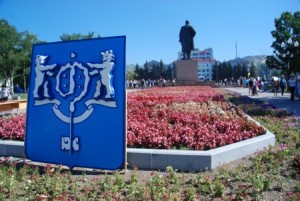 A Juzhno-Sakhalinsk, ogni trenta minuti, gli altoparlanti sistemati nelle strade e piazze principali rilanciano il bollettino delle radiazioni. Fukushima si trova al di là del mare ad un migliaio di chilometri più a sud. La vita prosegue tranquilla anche se i 173mila abitanti della città isolana sono preoccupati. Bere l’acqua in bottiglia è la prima cosa da fare come stare il meno possibile all’aperto.
A Juzhno-Sakhalinsk, ogni trenta minuti, gli altoparlanti sistemati nelle strade e piazze principali rilanciano il bollettino delle radiazioni. Fukushima si trova al di là del mare ad un migliaio di chilometri più a sud. La vita prosegue tranquilla anche se i 173mila abitanti della città isolana sono preoccupati. Bere l’acqua in bottiglia è la prima cosa da fare come stare il meno possibile all’aperto.
Per tranquillizzare la gente, che non si fida dei soliti “funzionari” il premier Putin si è precipitato fin quaggiù quasi subito dopo lo tsunami di marzo. 6,5 milioni di russi vivono nell’Estremo oriente e Vladivostok dista soltanto ottocento chilometri ad ovest della centrale giapponese. I venti per ora spirano verso est, verso il Pacifico e gli Stati Uniti.
Dozzine di specialisti federali sono stati inviati da Mosca nel Sol Levante per controllare da vicino la situazione. La loro esperienza, fatta a Cernobyl, potrebbe tornare utile.
Nei mesi scorsi le relazioni russo-giapponesi sono state roventi per il riaccendersi della disputa per le isole Curili meridionali. I due Paesi non hanno ancora nemmeno firmato il Trattato di pace a conclusione della Seconda guerra mondiale per la questione dei confini. Dopo l’incidente di Fukushima il Cremlino avrebbe voluto raffreddare i rapporti tesi, ma i giapponesi hanno risposto picche.
Mosca, a questo punto, starebbe valutando di far entrare compagnie di Tokyo nell’azionariato per lo sfruttamento dei grandi campi siberiani di Kovykta e di Chayanda in Jakuzia. Putin ha anche dato disposizione di mettere a disposizione del Sol Levante la maggiore quantità possibile di idrocarburi per i prossimi mesi. L’obiettivo primario è far dimenticare i recenti ordini del presidente Medvedev di dislocare immediatamente sulle Curili armi di ultima generazione in funzione anti-nipponica.
Welcome
We are a group of long experienced European journalists and intellectuals interested in international politics and culture. We would like to exchange our opinion on new Europe and Russia.
Categories
- Breaking News (11)
- CIS (129)
- Climate (2)
- Energy&Economy (115)
- EU Eastern Dimension (85)
- Euro 2012 – Sochi 2014 – World Cup 2018, Sport (43)
- Euro-Integration (135)
- History Culture (198)
- International Policy (261)
- Military (74)
- Interviews (18)
- Italy – Italia – Suisse (47)
- Odd Enough (10)
- Poland and Baltic States (126)
- Religion (31)
- Russia (421)
- Survey (4)
- Turning points (4)
- Ukraine (176)
- Российские страницы (113)
Archives
- November 2020
- October 2020
- September 2020
- August 2020
- July 2020
- May 2020
- April 2020
- March 2020
- January 2020
- December 2019
- November 2019
- October 2019
- September 2019
- August 2019
- July 2019
- June 2019
- May 2019
- April 2019
- March 2019
- February 2019
- December 2018
- November 2018
- October 2018
- September 2018
- August 2018
- July 2018
- June 2018
- May 2018
- April 2018
- March 2018
- February 2018
- January 2018
- December 2017
- November 2017
- October 2017
- September 2017
- August 2017
- July 2017
- May 2017
- March 2017
- January 2017
- December 2016
- November 2016
- October 2016
- September 2016
- July 2016
- June 2016
- May 2016
- April 2016
- February 2016
- January 2016
- November 2015
- October 2015
- September 2015
- June 2015
- April 2015
- March 2015
- February 2015
- January 2015
- December 2014
- November 2014
- October 2014
- September 2014
- August 2014
- July 2014
- June 2014
- May 2014
- April 2014
- March 2014
- February 2014
- January 2014
- December 2013
- November 2013
- October 2013
- September 2013
- August 2013
- July 2013
- June 2013
- May 2013
- April 2013
- March 2013
- February 2013
- January 2013
- December 2012
- November 2012
- October 2012
- September 2012
- August 2012
- July 2012
- June 2012
- May 2012
- April 2012
- March 2012
- February 2012
- January 2012
- December 2011
- November 2011
- October 2011
- September 2011
- August 2011
- July 2011
- June 2011
- May 2011
- April 2011
- March 2011
- February 2011
- January 2011
- December 2010
- November 2010
- October 2010
- September 2010
- August 2010
- July 2010
- June 2010
- May 2010
- April 2010
- March 2010
- February 2010
- January 2010
- December 2009
- November 2009
- October 2009
- September 2009
- August 2009
Our books




